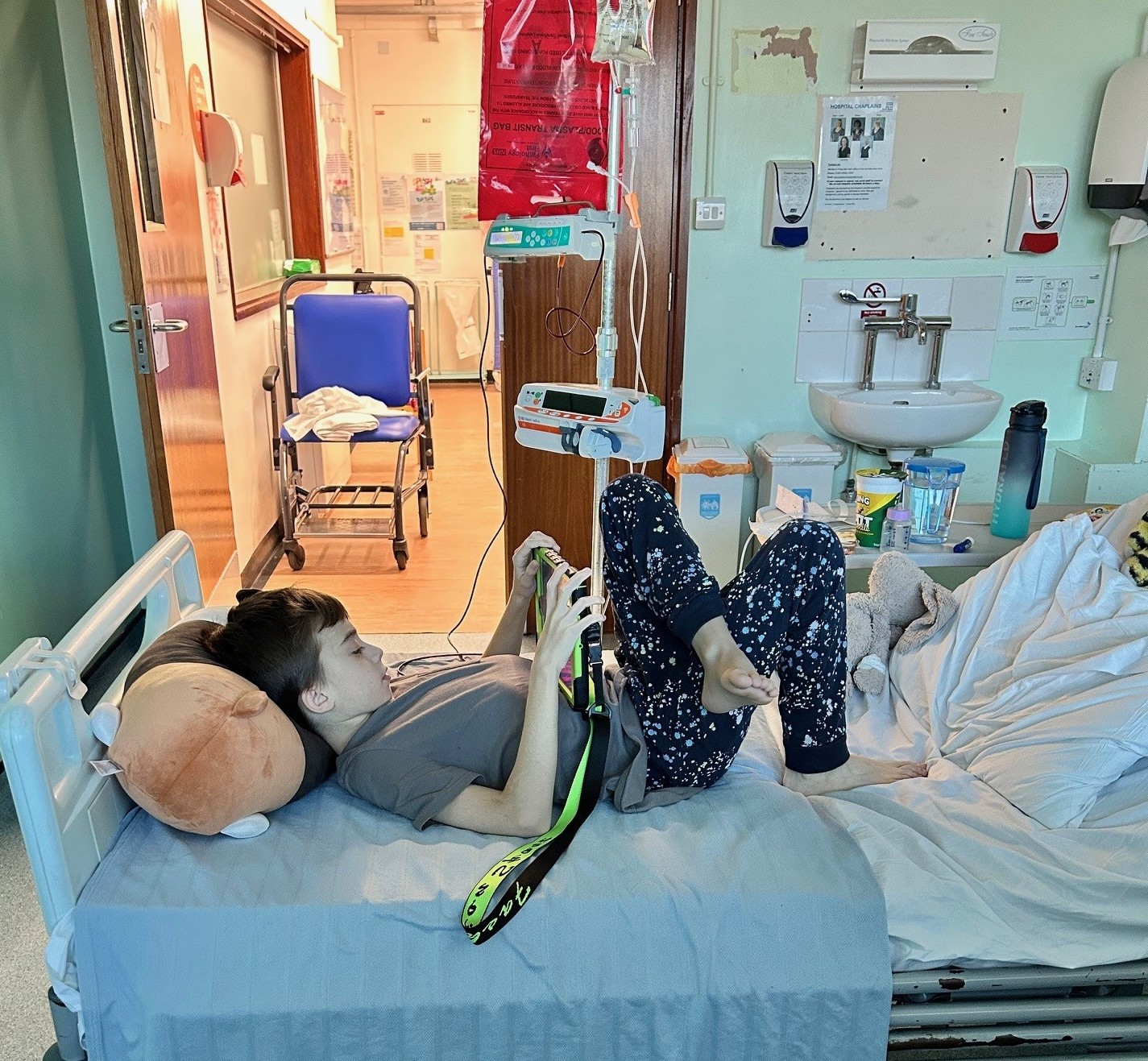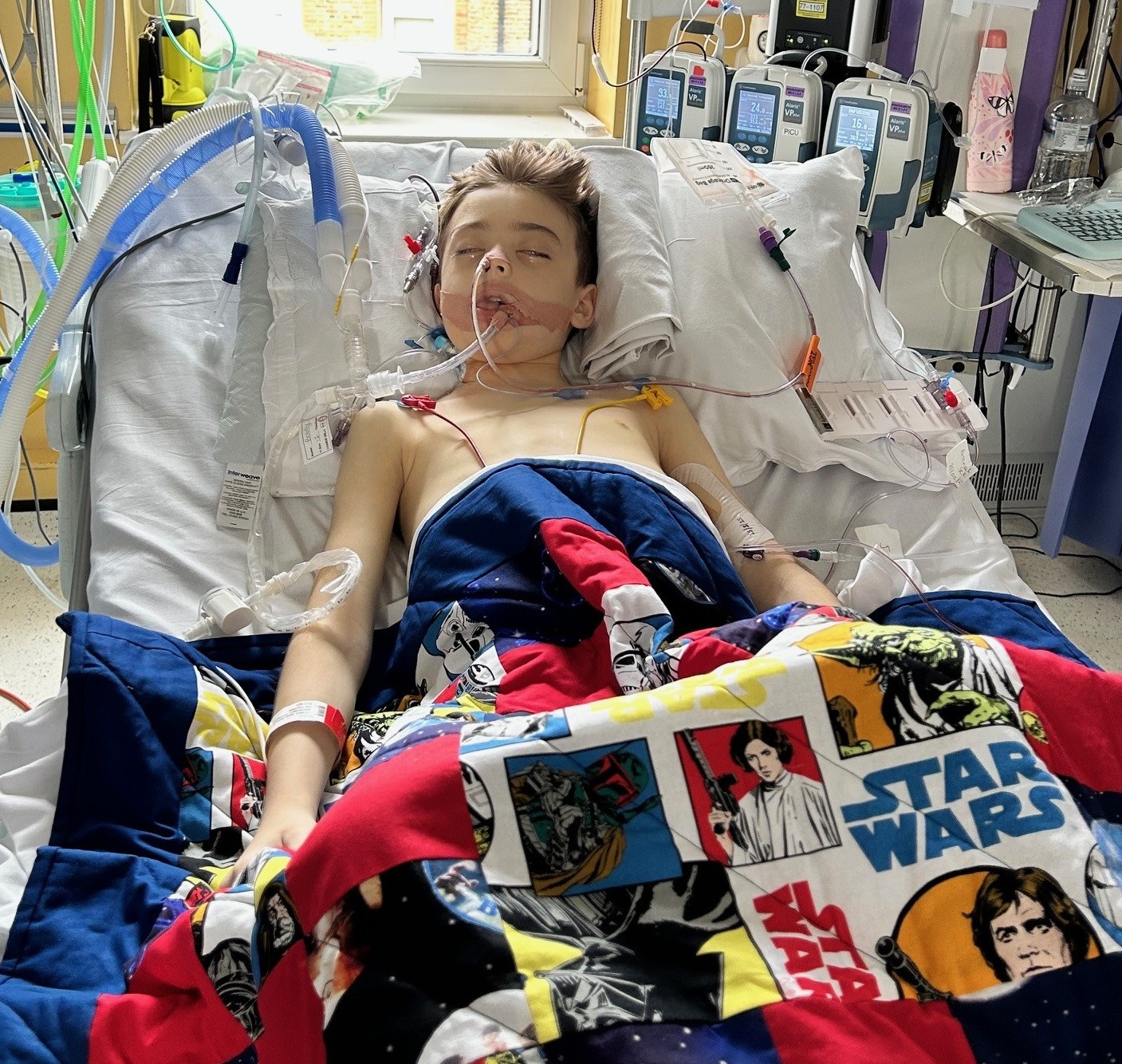
Kelly’s son Bobby who is now 11, has biliary atresia and underwent a Kasai when he was just a few weeks old. But as Kelly shares here, their journey since has been anything but smooth.
Bobby has been in and out of hospital ever since his Kasai. By the time he was nine or ten, he became neutropenic, he needed blood transfusions, IV antibiotics and regular IV vitamin K. He lost a lot of weight, and his tummy was very swollen. Every fever meant rushing to hospital, where he was admitted for cholangitis and put on IV antibiotics. He also had a very enlarged spleen, nosebleeds, and itching. This became our “normal” – our local hospital felt like a second home.
Each admission got harder. Bobby spent weeks at a time away from his friends and brother, isolated in a room with just me. Birthdays and Christmases were often spent on the ward, so I’d wrap presents early and bring them in to make sure he didn’t miss out.
I’ll never forget the clinic at King’s where we were told Bobby would need a transplant. He was nine and this had been my biggest fear since he was diagnosed with biliary atresia as a baby. I was devastated, but also relieved.
Bobby was officially listed in August 2023. From then on, every phone call made my heart race – was this it? But he was often too unwell to stay active on the list, which was terrifying.

Our first call came on New Year’s Day 2024, but the liver wasn’t suitable. The second call came in February. This time surgery went ahead, including a splenectomy, but recovery was very tough. Bobby was in hospital for over a month – he had rejection, and infections. Even after he was discharged, we spent months in and out of hospital so that Bobby could have regular IV antibiotics and blood transfusions. He lost so much weight, he was down to just 24kg, and in August 2024 he was put back on the list. It broke my heart to think he might have to go through it all again.
In March we got the third call. The donor liver was suitable and surgery went ahead – it lasted nine hours. Although recovery was complicated – he needed oxygen, stomach and chest drains, and fought through fevers – Bobby showed such determination. On 29th April he was finally discharged home.
Since then, although he is having a few issues which are being dealt with by the hospital he’s been doing so much better. He hasn’t needed to be admitted locally, has gained weight, and after three years away, may even be able to return to school part-time soon.

Throughout this whole journey I always spoke to Kate at CLDF and she helped me with lots of things ,whether it was speaking to Bobby’s school, as I had to fight for some sort of education as they wasn’t being very supportive, or supporting me through all of the questions and answers that were given from the consultant and doctors.
And of course none of this would have been possible without his donors. We will be forever grateful to them, and to their families, for their incredible gift.

